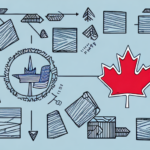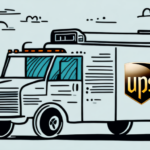Understanding UPS Ground Commercial Third Party Charges
As a business owner relying on UPS for shipping products, it's essential to comprehend UPS ground commercial third party charges. These fees are imposed by third-party shippers for services such as pickup, transportation, and delivery of packages via UPS. If a third-party shipper fails to cover these fees, UPS directs the charges to the recipient, impacting your overall shipping costs.
These charges can vary significantly based on the third-party shipper chosen. Some may have higher service fees, leading to increased UPS charges. It's advisable to compare the fees of different third-party shippers before selecting one for your shipping needs to ensure cost-effectiveness.
Additionally, UPS ground commercial third party charges might include fees for special services like signature confirmation or insurance. These additional services can accumulate quickly, so it's crucial to review your UPS bill meticulously to avoid unexpected expenses.
Common Reasons for Unbilled UPS Ground Commercial Third Party Charges
Unbilled UPS ground commercial third party charges often arise due to several factors:
- Third-Party Shipper’s Non-Payment: When a third-party shipper neglects to settle the shipping fees, UPS transfers these costs to the package recipient.
- Incorrect Shipping Information: Errors in address details, missing account numbers, or inaccurate billing information can lead to additional charges.
- Package Discrepancies: Variations in the declared weight or dimensions of a package can result in unforeseen fees.
- Special Handling Requirements: Services such as signature confirmation or expedited delivery may incur extra costs not initially billed to the shipper.
To mitigate these issues, regularly audit your shipping records and invoices to ensure all charges are legitimate and accurately applied.
Identifying and Monitoring UPS Ground Commercial Third Party Charges
Detecting unbilled UPS ground commercial third party charges involves a careful examination of your UPS bills:
- Line Item Codes: Look for specific codes like 3RD or TPC that indicate third-party charges.
- Detailed Billing Statements: Sometimes, charges may appear under different names or codes, making it essential to scrutinize each line item.
- Comparison with Shipping Records: Cross-referencing your UPS bill with your shipping documentation can help identify discrepancies.
If uncertainties arise regarding any charges, don't hesitate to contact UPS customer service for clarification.
Steps to Resolve Unbilled UPS Ground Commercial Third Party Charges
Encountering unbilled charges can be frustrating, but taking the following steps can help resolve the issue:
- Contact the Third-Party Shipper: Initiate a discussion with the shipper to address and rectify any billing discrepancies.
- Reach Out to UPS Customer Service: Provide UPS with relevant documentation such as receipts and tracking numbers to support your case.
- File a Dispute: If direct resolution with the shipper and UPS is unsuccessful, you can formally dispute the charges through your UPS account or by calling their support line.
- Regular Invoice Reviews: Consistently review your UPS invoices to catch and address unbilled charges promptly.
For more detailed guidance, refer to UPS's official billing and payment resources.
Preventing Future Unbilled UPS Ground Commercial Third Party Charges
Implementing proactive measures can help avoid unbilled third party charges:
- Accurate Billing Information: Ensure that all billing details and account numbers provided to third-party shippers are correct.
- Clear Communication: Verify that third-party shippers understand all associated shipping charges and services required.
- Outsource Billing: Consider partnering with specialized third-party billing providers to manage and streamline your shipping expenses.
- Regular Invoice Audits: Periodically review your UPS invoices to ensure all charges are expected and accurate.
- Negotiate Shipping Rates: Engage with UPS or third-party shippers to negotiate better rates based on your shipping volume.
Adhering to these practices can significantly reduce the occurrence of unexpected charges and optimize your shipping costs.
Managing Shipping and Billing Effectively
Effective management of your shipping and billing processes is crucial for maintaining financial health:
Utilize UPS’s Electronic Billing Tools
Leverage UPS's electronic billing and invoicing tools to access real-time billing information, create custom reports, and set up automatic payments. These tools simplify the tracking and management of your shipping expenses.
Regular Invoice Review
Conduct routine checks of your UPS invoices to identify and address any inaccuracies or unauthorized charges. Ensure that your billing address and contact information are up-to-date to prevent any disruptions in receiving invoices.
Outsource to Third-Party Providers
Partnering with specialized third-party shipping and billing providers can streamline your processes, optimize costs, and provide expert resolution for any billing issues that may arise.
For more insights on managing shipping expenses, refer to industry reports from sources like the Inbound Logistics.
Negotiating Rates and Optimizing Shipping Costs
Negotiating better rates and optimizing your shipping strategies can lead to substantial savings:
Engage with UPS Sales Team
Contacting the UPS sales team can open opportunities to negotiate lower shipping rates based on your business's shipping volume and frequency.
Analyze Shipping Data
Review your shipping patterns to identify areas where costs can be reduced, such as consolidating shipments or selecting more cost-effective shipping methods.
Leverage Third-Party Providers
Third-party shipping experts can help analyze your shipping data, negotiate better rates, and suggest strategies to optimize your shipping expenses.
According to the Business Insider, businesses can reduce shipping costs by up to 20% through strategic negotiations and optimized shipping practices.
Tracking and Monitoring Your Shipping Expenses
Consistent tracking and monitoring are vital to staying ahead of unbilled charges:
- Use UPS Tracking Tools: Utilize UPS's comprehensive tracking systems to monitor your shipments in real-time.
- Regular Billing Reports: Generate and review billing reports to keep a close eye on your shipping expenses.
- Collaborate with Third-Party Providers: Engage with specialized providers to maintain oversight of your shipping costs and quickly identify any discrepancies.
Implementing these practices ensures that you maintain control over your shipping expenses and can promptly address any issues related to unbilled charges.
Impact of UPS Ground Commercial Third Party Charges on Your Business
Unbilled UPS ground commercial third party charges can significantly affect your business's profitability:
- Increased Operational Costs: Unexpected shipping fees can erode profit margins, especially for businesses with high shipping volumes.
- Cash Flow Issues: Accumulated unbilled charges can disrupt cash flow management, leading to financial strain.
- Customer Satisfaction: Discrepancies in shipping charges can lead to billing errors, affecting customer trust and satisfaction.
By understanding and managing these charges effectively, businesses can safeguard their financial health and maintain positive customer relationships.
Benefits of Outsourcing Your Shipping and Billing Needs
Outsourcing your shipping and billing responsibilities to specialized third-party providers offers numerous advantages:
- Cost Optimization: Third-party experts can negotiate better rates and identify cost-saving opportunities.
- Efficiency: Streamlined processes can reduce administrative burdens, allowing you to focus on core business activities.
- Expertise: Specialized providers bring industry knowledge and experience, enhancing the management of shipping and billing operations.
- Issue Resolution: Third-party providers can handle disputes and billing discrepancies more effectively, minimizing your involvement.
For more information on the benefits of outsourcing, refer to the Forbes article on outsourcing shipping and fulfillment.
Making Accurate Projections of Future UPS Ground Commercial Third Party Charges
Accurate forecasting of UPS ground commercial third party charges enables better budgeting and financial planning:
Utilize UPS Billing and Invoicing Tools
UPS offers various tools to track and analyze shipping expenses, helping you project future costs based on historical data.
Analyze Shipment Volume
Understanding your shipping volume trends can assist in negotiating better rates and anticipating future charges.
Collaborate with Third-Party Providers
Engaging with expert providers can provide insights and strategies to optimize your shipping costs and improve projection accuracy.
According to the Statista report on US shipping costs, businesses can better manage expenses by leveraging data-driven forecasting methods.




















